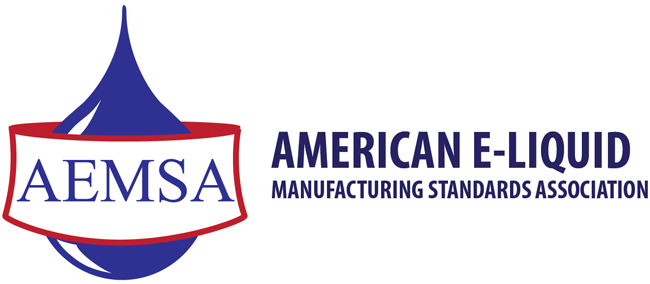Friday, December 8, 2017
AEMSA contacted the House and Senate Appropriations Committee leaders, asking that they remove provisions within the appropriations bill, sometimes referred to as “the Cole-Bishop Amendment”, in response to language directed towards burdensome product standards on flavorings and hardware.
Taking into consideration FDA Commissioner Gottlieb’s July 28th announcement to extend the PMTA deadline to 2022, and based on our core value and beliefs, AEMSA felt compelled to request the withdrawal of the new language from the bill.
These provisions will likely eliminate flavorings, other than tobacco or menthol in e-liquid products by 2020, almost 2 years before the extended PMTA submission deadline of 2022.
If passed as currently written, this will be devastating to the industry, consumers, and tobacco harm reduction as a whole.
AEMSA is working towards the complete removal of vapor products from the Tobacco Control Act through legislation like H.R.2194 and other efforts.
AEMSA strongly believes vapor products are NOT tobacco products.
Vapor products are tobacco harm reduction alternative products, and should be regulated as such.
DID YOU KNOW…
- The Cole-Bishop Amendment stops innovation in mods and e-liquid products and keeps the PMTA requirement for new hardware and e-liquid
- The Cole-Bishop Amendment was changed in June 2017 to force FDA to create standards for “characterizing flavors” and batteries
- A “characterizing flavor”, within the Tobacco Control Act, is any additive, artificial or natural flavor, other than tobacco or menthol1
- The Cole-Bishop Amendment does not amend the Tobacco Control Act
- It is a “prohibition of funds” that prevents the FDA from implementing specific parts of the Tobacco Control Act and can easily be changed by other FDA appropriations bills
- The Cole-Bishop Amendment essentially cements into law that we are okay with being considered tobacco products
- The only real benefit to the Cole-Bishop Amendment is that it “grandfathers” products that were already on the market as of 8/8/2016
- In July 2017, FDA extended the PMTA deadline to 11/8/2022
- The result is that FDA could issue product standards that effectively ban the industry by 2020
- There is a bill in Congress, H.R.2194 that would remove vaping products from the Tobacco Control Act entirely
- This would mean that the grandfather date no longer matters; PMTA, SE, and all the other acronyms we’ve been using no longer apply
The original Cole-Bishop amendment WAS needed when the PMTA deadline was 8/8/18.
That immediate need no longer exists.
This modified Cole-Bishop amendment stifles innovation and hampers our efforts to provide smokers with a far less harmful alternative and keeps vapor products regulated as tobacco.
If you would like to read AEMSA President Scott Eley’s letters sent to the House and Senate Appropriations Chairmen, please view them at the following links:
AEMSA Letter to House Appropriations Chairmen and Ranking Members
AEMSA Letter to Senate Appropriations Chairmen and Ranking Members
Subcommittee Draft of the FY 2018 Agriculture Appropriations bill:
https://appropriations.house.gov/uploadedfiles/bills-115hr-sc-ap-fy2018-agriculture-agriculture.pdf
See page 99, Section 753
1 See https://www.fda.gov/TobaccoProducts/Labeling/ProductsIngredientsComponents/ucm2019416.htm
